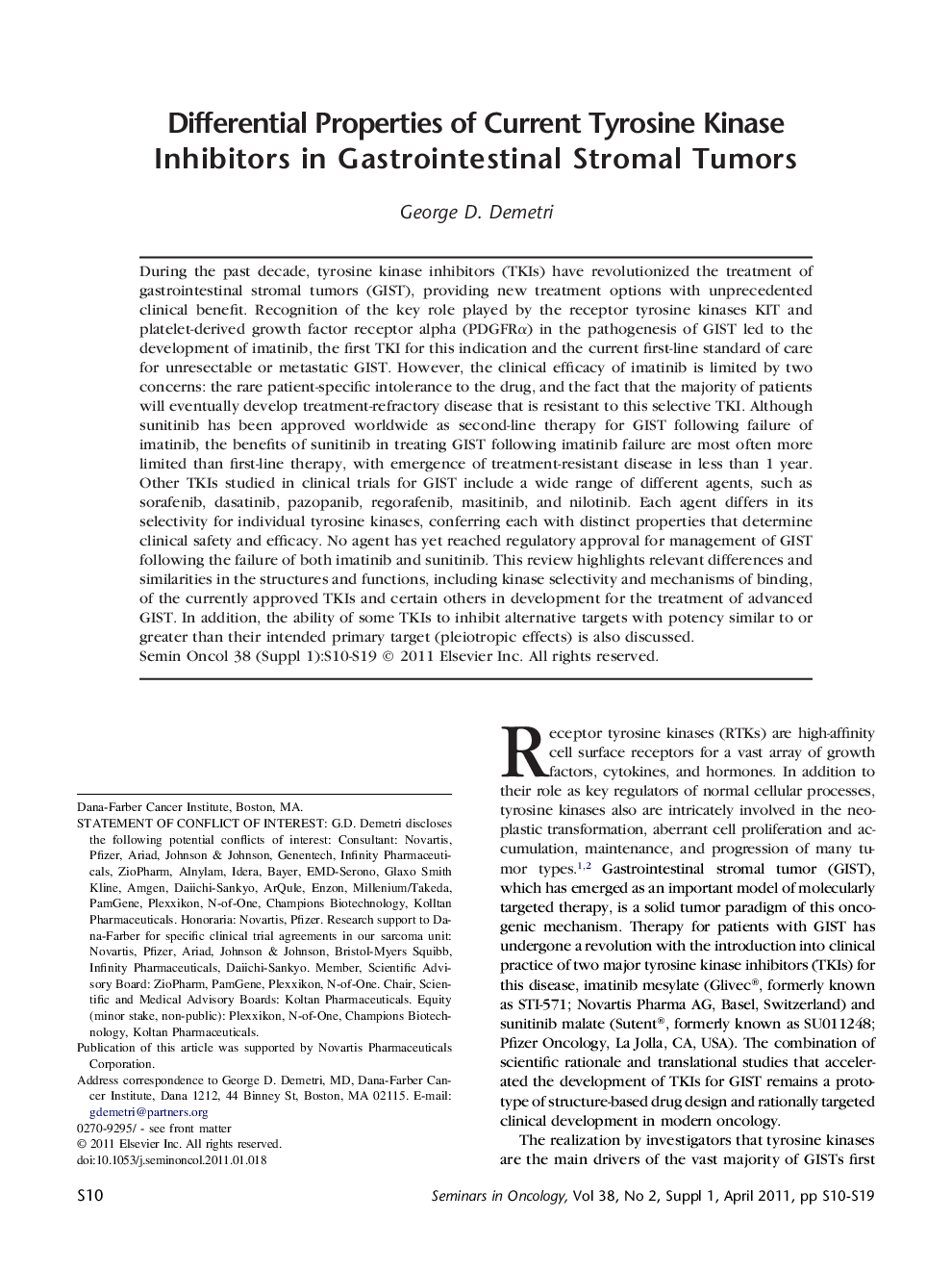| کد مقاله | کد نشریه | سال انتشار | مقاله انگلیسی | نسخه تمام متن |
|---|---|---|---|---|
| 2162636 | 1091262 | 2011 | 10 صفحه PDF | دانلود رایگان |
عنوان انگلیسی مقاله ISI
Differential Properties of Current Tyrosine Kinase Inhibitors in Gastrointestinal Stromal Tumors
دانلود مقاله + سفارش ترجمه
دانلود مقاله ISI انگلیسی
رایگان برای ایرانیان
موضوعات مرتبط
علوم زیستی و بیوفناوری
بیوشیمی، ژنتیک و زیست شناسی مولکولی
تحقیقات سرطان
پیش نمایش صفحه اول مقاله

چکیده انگلیسی
During the past decade, tyrosine kinase inhibitors (TKIs) have revolutionized the treatment of gastrointestinal stromal tumors (GIST), providing new treatment options with unprecedented clinical benefit. Recognition of the key role played by the receptor tyrosine kinases KIT and platelet-derived growth factor receptor alpha (PDGFRα) in the pathogenesis of GIST led to the development of imatinib, the first TKI for this indication and the current first-line standard of care for unresectable or metastatic GIST. However, the clinical efficacy of imatinib is limited by two concerns: the rare patient-specific intolerance to the drug, and the fact that the majority of patients will eventually develop treatment-refractory disease that is resistant to this selective TKI. Although sunitinib has been approved worldwide as second-line therapy for GIST following failure of imatinib, the benefits of sunitinib in treating GIST following imatinib failure are most often more limited than first-line therapy, with emergence of treatment-resistant disease in less than 1 year. Other TKIs studied in clinical trials for GIST include a wide range of different agents, such as sorafenib, dasatinib, pazopanib, regorafenib, masitinib, and nilotinib. Each agent differs in its selectivity for individual tyrosine kinases, conferring each with distinct properties that determine clinical safety and efficacy. No agent has yet reached regulatory approval for management of GIST following the failure of both imatinib and sunitinib. This review highlights relevant differences and similarities in the structures and functions, including kinase selectivity and mechanisms of binding, of the currently approved TKIs and certain others in development for the treatment of advanced GIST. In addition, the ability of some TKIs to inhibit alternative targets with potency similar to or greater than their intended primary target (pleiotropic effects) is also discussed.
ناشر
Database: Elsevier - ScienceDirect (ساینس دایرکت)
Journal: Seminars in Oncology - Volume 38, Supplement 1, April 2011, Pages S10-S19
Journal: Seminars in Oncology - Volume 38, Supplement 1, April 2011, Pages S10-S19
نویسندگان
George D. Demetri,